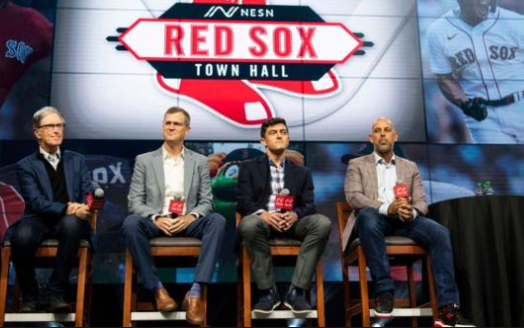Liverpool, Boston, and a tale of two teams: glory and fury
On the evening of 20 January, it would not be the first, or last, time that jeers would fill the air of a Massachusetts casino.
Henry finally had to pause three times to let the dissent die down before responding to a question about why Boston Red Sox tickets cost so much.
As Henry perched on a bar stool on stage, the ardent Red Sox supporters, who had gathered for the team’s yearly ‘Winter Weekend’ event to hear from players and officials, were not afraid to voice their opinions.
More than any other Major League Baseball team in the last 20 years, the Red Sox have won four World Series titles, but their fan base is far from satisfied. And there was a lot of anger directed at Henry, the principal owner of Fenway Sports Group, which owns the Liverpool football club in the Premier League as well as the Red Sox.
Over the Atlantic, Liverpool and Chelsea drew 0-0 at Anfield the following day. It was the Reds’ lone Premier League point in a disastrous January that destroyed their dreams of finishing in the top four.
The following weekend they were eliminated from the FA Cup in Brighton, and their Champions League campaign came to an end with a 6-2 aggregate loss to Real Madrid, ending their final trophy hopes.
A segment of Liverpool supporters held FSG accountable for the unsatisfactory season.
On both sides of the Atlantic, the owners have been ahead of the game.
Henry claimed that the Red Sox and FSG’s spending on the team were the subject of a “false narrative” in an email exchange with the Boston Sports Journal in February.
He talked to the Liverpool Echo one month later.
“Our efforts every day have been and continue to be focused on the long-term health and competitiveness of the club,” said Henry.
“Investment in the club is never for the short-term.” He continued: “Our commitment remains stronger than ever.”
Not everyone is convinced by it.
Since FSG (formerly known as New England Sports Ventures) acquired the Boston Red Sox in 2010, a lot of talk has focused on the similarities between the team and Liverpool.
The similarities are striking, ranging from the cities’ maritime and Catholic origins to the legendary histories of Anfield and Fenway Park, both of which have undergone renovations under FSG’s direction.
Cathartic championship victories for both teams have also occurred since FSG acquired them.
